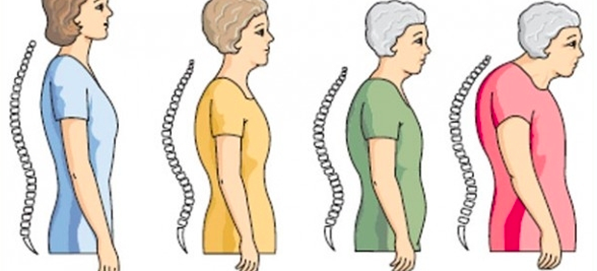 Did you know that your skeleton is 1/10th of your body mass and 10% of your bone is renewed each year. Our bone mass peaks between the ages of 20 and 40 years and from the ages of 30-35 years there is an average decrease of 1% in done density per year. This can be accelerated up to 6% decrease in bone mass for females post menopause due to the more significant changes in hormone levels.
Did you know that your skeleton is 1/10th of your body mass and 10% of your bone is renewed each year. Our bone mass peaks between the ages of 20 and 40 years and from the ages of 30-35 years there is an average decrease of 1% in done density per year. This can be accelerated up to 6% decrease in bone mass for females post menopause due to the more significant changes in hormone levels.
I’m sure we’re all aware that I’m hinting at Osteoporosis. Osteoporosis is defined as being below -2.5, when measure on a DEXA machine. The term Osteopenia is also give to someone whose bone density is slightly below average but not at osteopenic levels (-1 to -2.5 DEXA). The loss of bone density in itself is not painful. However, the fractures that occur because of it are and the resulting change in body shape due to the healing process of the fractures can impact on breathing, digestion and movement. Unfortunately, we only find out there may be an issue once and incident has occurred. One the positive side, it’s never too late to start addressing you’re bone health. Loss of bone density can be significantly slowed through modification of lifestyle, nutrition and increase in or change in activity types and levels.
National Guidelines from UK and World authorities vary slightly but agree on taking a minimum of 150 minutes per week of regular moderate to vigorous intensity aerobic exercise. Most importantly the Department of Health indicate that there should be 2 days per week of strength conditioning and balance. The benefits of these activities help prevent falls and the associated fractures that could result from falling. Weight bearing exercises also encourage the bones to strengthen and the muscles to support the skeleton better. It also encourages better and confidence in movement patterns i.e. reduced risk to tripping ad better support if there is a loss of balance.
The best news if that if you’re attending a Modern Pilates session at Ormkirk Pilates you are meeting the recommendations for preventing or reducing the impact of reduce bone density. The standing, balancing and arm loading work we do are weight bearing exercises and they develop your movement patterns. We strengthen the supporting muscles of the spine, reduce the weight of the head on the spine and learn to move to give maximum support to it in our movement.
If you have been told that you have osteopenia or osteoporosis and would like to support your body more or you don’t know but would like to prevent it from occurring and want more information drop me a line at info@ormskirkpilates.co.uk

Recent Comments